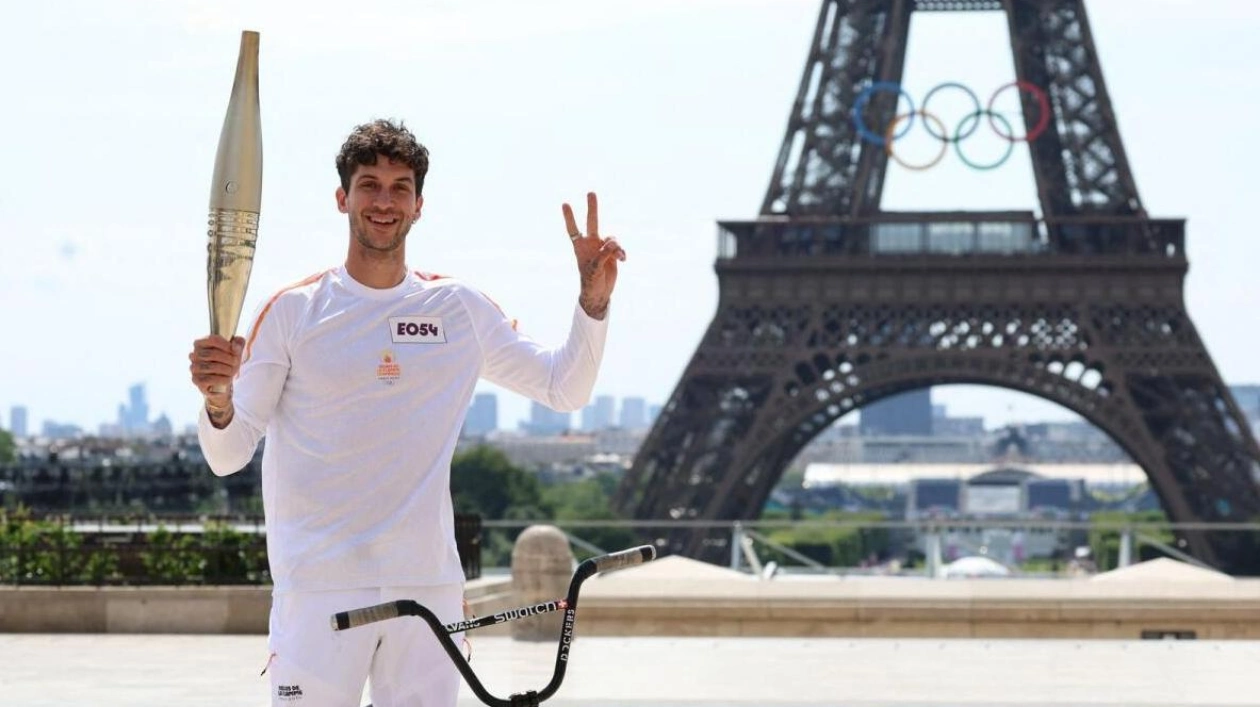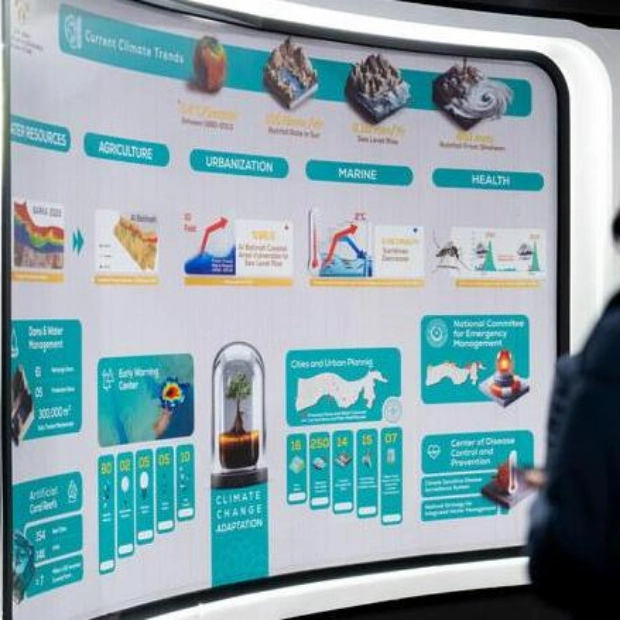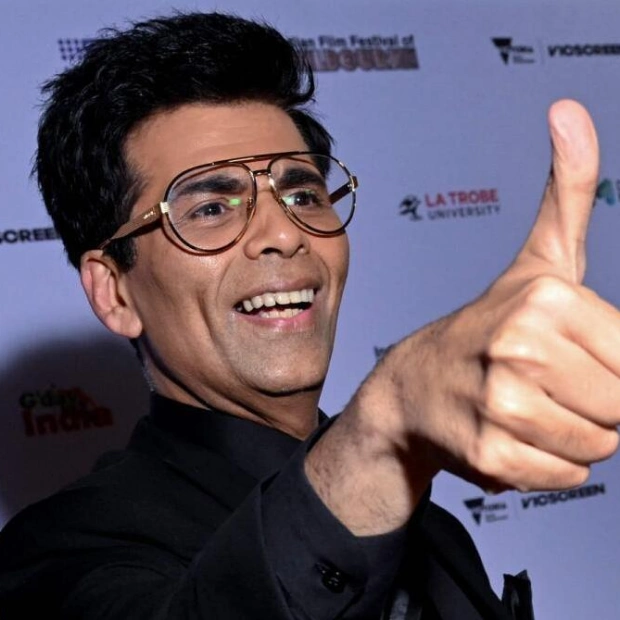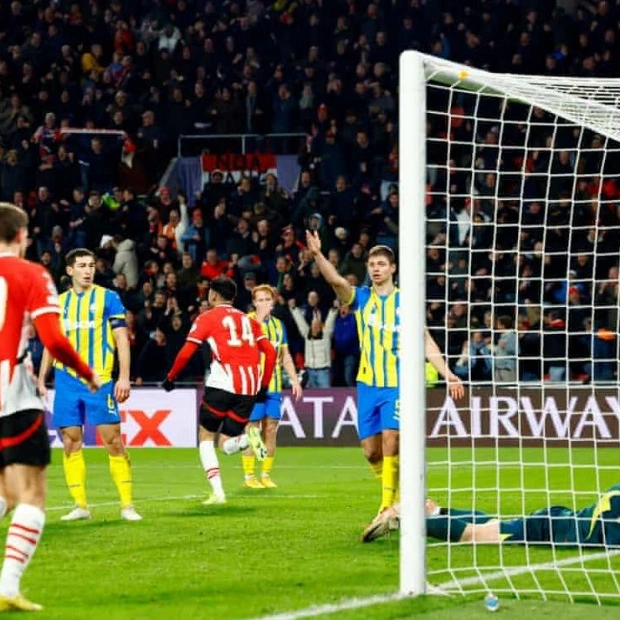Thousands of French security personnel have cordoned off a six-kilometer (four-mile) area in central Paris in anticipation of the highly intricate Olympic opening ceremony scheduled for next week. The opening parade on July 26, which will feature athletes sailing down the Seine, has led to the restriction of most vehicles in central riverside residential areas from 5:00 am (0300 GMT) on Thursday. Traffic on adjacent boulevards was noticeably lighter than usual as many drivers opted to stay away, but locals and tourists encountered checkpoints, especially when attempting to cross the river.
"It's a real nuisance," cyclist Frank Groner, 52, told AFP after being denied passage by police near the La Samaritaine department store. "I read everything online and thought I understood. You can't cross anywhere!" With the opening ceremony just eight days away, Paris is undergoing a transformation to welcome nearly nine million Olympic ticket holders. Organizers are finalizing the temporary sports facilities at iconic sites such as the Eiffel Tower, the Invalides, and the Place de la Concorde. Advertising boards, new artwork, and Olympic decorations are being installed, while the introduction of Olympic VIP traffic lanes this week is the latest modification to the city's congested streets.
"The Olympics have brought us nothing but trouble," taxi driver Rabah Ouanes, 53, complained on Thursday, citing the extensive construction work as the cause of the traffic chaos. In the lead-up to the Games, tourist numbers are significantly lower than usual, and many Parisians have chosen to go on holiday to avoid the disruption. "Our clientele has dropped by 50 percent," said Renaud, a senior waiter at the renowned Deux Magots cafe in Saint-Germain-des-Pres, which is within the new security zone established on Thursday. "Normally, we have people lining up outside," he said, pointing to the numerous empty seats on the outdoor terrace.
Elsewhere on Thursday, the first athletes arrived at the newly constructed Olympic Village in the northern suburb of Saint-Ouen, which urban planners hope to revitalize. The complex, consisting of 40 different low-rise housing blocks, showcases innovative construction methods using low-carbon concrete, water recycling, and reclaimed materials. It was designed to be without air-conditioning, but Olympic delegations have requested around 2,500 portable cooling units for their athletes due to concerns about high temperatures.
"We are super excited to see how it looks," Australian hockey player Stephanie Kershaw said as she awaited entry to the village. "We can't wait to begin." Members of the Argentinian, Brazilian, and Kenyan delegations were seen wheeling luggage trolleys into the complex, while British and US athletes are also expected on Thursday. At full capacity, the village will accommodate 14,500 people, including 9,000 athletes. Ensuring the security of the Paris Games is the top priority for French authorities, with Interior Minister Gerald Darmanin asserting on Wednesday that there is currently "no credible threat" against the event.
The opening ceremony has caused anxiety among senior police officers since its announcement in 2021 due to the challenge of securing such a large, densely populated urban area. Approximately 6,000-7,000 athletes are expected to sail down the Seine on nearly a hundred barges and river boats. This will mark the first time a Summer Olympics has opened outside the main athletics stadium, with an anticipated 500,000 spectators watching from stands, riverbanks, and overlooking apartments. The two-tiered security perimeter installed on Thursday restricts most vehicles from central areas. Access to the highest-security "grey zone" along both banks of the Seine, including for residents or tourists with hotel reservations in the area, requires a security pass in the form of a QR code. River barriers blocking access to the Seine were operational on Thursday, and a vast no-fly zone will be enforced above the capital on the evening of the ceremony. The installation of tens of thousands of metal security barriers along the parade route and around the temporary venues has drawn criticism from some Parisians. Martine Dubois, a 74-year-old resident of Saint-Germain-des-Pres, described the Olympics as "a real inconvenience." The metro stop she uses for work was one of 10 closed for security reasons on Thursday, and the barriers "make you feel like you're living in a prison," she said.






